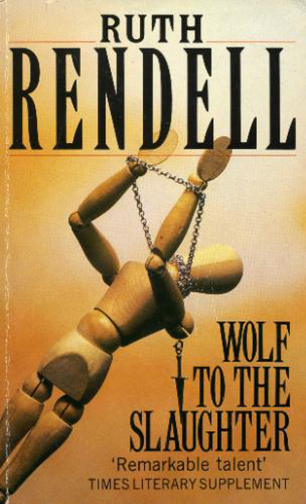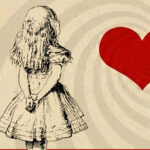Home »

Pushing mystery genre into a vehicle for social reflection
Book Review
By Derryll White
Rendell, Ruth (1967). Wolf to the Slaughter.
 I bought this book at a library sale, not ever having read a Ruth Rendell novel. Also known as Baroness Rendell of Babergh, she sits in the British House of Lords for the Labour Party. She has written most of her life, producing 24 novels in the Inspector Wexford series, of which this is number three. She has also produced 26 standalone novels, two novellas and seven short story collections. As Barbara Vine she has written an additional 14 novels. So, a significant output from a writer who is credited with upgrading the whole British mystery genre with a new psychological and social consciousness.
I bought this book at a library sale, not ever having read a Ruth Rendell novel. Also known as Baroness Rendell of Babergh, she sits in the British House of Lords for the Labour Party. She has written most of her life, producing 24 novels in the Inspector Wexford series, of which this is number three. She has also produced 26 standalone novels, two novellas and seven short story collections. As Barbara Vine she has written an additional 14 novels. So, a significant output from a writer who is credited with upgrading the whole British mystery genre with a new psychological and social consciousness.
And she does do that. The reader has to pay attention to Ruth Rendell. She describes with insightful detail, builds a character and then quietly inserts a line such as “He got into the car beside Margolis, wondering why the defenseless put themselves into the firing line.” That quickly she makes a fool of a person just described as a successful pillar of the business community.
She is a writer that cuts deep, quick to throw out the morals of the day as given – but in such a way as to give the reader pause to contemplate their veracity. “The woman was thoroughly immoral too. Decent women had clean tidy homes.” And just that quickly does society often rush to judgment.
She speaks out strongly for a Britain that is disappearing under the heel of commerce, bringing me to contemplate just why people would want to destroy the old small brick Water/Electrical Building here in Cranbrook, B.C.
At some point in the story I stopped and thought ‘the characters are strong but distant, different, English, roughly working class and a little dated.’ Then I did the math and thought ‘Right, roughly 45 years dated.’ But that did not particularly bother me because I was fascinated with the way Rendell kept her policemen forceful and not suave, although Inspector Wexford is often driven to quote the most beautiful poetry.
The secondary characters grow, exhibit the norms of the 1960s but push toward a less judgmental and more sympathetic world. Rendell is very good, particularly given the time of writing, at pushing the mystery genre into a vehicle for social reflection and a voice for change to a kinder, more inclusive world where women are people and not simply objects of desire or derision. She is contemporary to Sjowall and Wahlöö in Sweden, who are normally credited with this movement of the genre. Ruth Rendell is strong enough, even here early in her career, to also let women show their baser, more controlling instincts.
Wolf to the Slaughter is an interesting read and Rendell is a good writer. I am not going to run out to acquire more of her books right away, but I suspect I will read her again.
*********
Excerpts from the novel
ROLES: “Blackmailers always are vindictive sir,” Martin said sagely unctuous. “A nasty spiteful thing, if ever there was one. Worse than murder, sir.”
An excessive show of respect always grated on Wexford, especially inthis case when it was associated with the imparting of platitudes he had heard a thousand times before. “Here endeth the first lesson,” he said sharply. “Answer that, will you?”
LOVE: Poetry was not among his considerable and heterogeneous reading matter, but he would have agreed that man’s love is of man’s life a thing apart. He would go there later when his work was done.
MARRIAGE: “Are you married?”
“Yes, I am.”
“Horrible business, isn’t it?” He paused and gazed lugubriously at a pump attendant giving green stamps with change. “Growing old together … Horrible!”
CHANGE: Burden shrugged and turned away. The old town was going, gradually and cruelly. Beauty and grace were inconvenient. They pulled down the old buildings, put up splendid new ones like the police station. New buildings needed new drains and new wiring and digging up the roads killed the old trees. New shops replaced the old, rhinestones and gilt goddesses the best jewelers between London and Brighton….
LOVE: His affairs had been practical and chilly. In his vocabulary love was a banned verb, the most obscene of the four letter words. He had never used it between ‘I’ and ‘you’. If he ever felt anything stronger than a physical need he called it desire with complications.
 – Derryll White once wrote books but now chooses to read and write about them. When not reading he writes history for the web at www.basininstitute.org.
– Derryll White once wrote books but now chooses to read and write about them. When not reading he writes history for the web at www.basininstitute.org.







